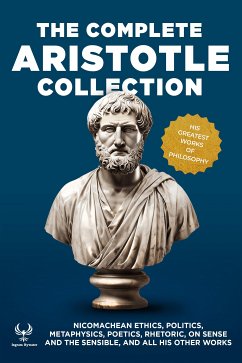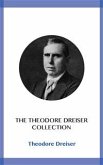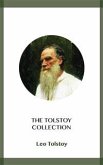Aristotle was a prominent Greek philosopher and polymath of the Classical era in Ancient Greece. His extensive writings span various fields, including physics, biology, zoology, metaphysics, logic, ethics, aesthetics, poetry, theater, music, rhetoric, psychology, linguistics, economics, politics, and government.
"The Nicomachean Ethics" explores the fundamental question of how individuals can live the best possible life.
In "Metaphysics," Aristotle delves into the nature of being, seeking to understand what can be said about any entity purely in terms of its existence, rather than its particular characteristics.
"Poetics" stands as the earliest surviving work dedicated to dramatic theory and is the first known philosophical treatise on literary theory.
In "Rhetoric," Aristotle identifies rhetoric as one of the three essential components of philosophy, alongside logic and dialectic.
"On Sense and the Sensible" is part of the Parva Naturalia, a collection of short treatises, and focuses on sensory perception.
"On Memory and Reminiscence" continues this exploration of how the senses contribute to memory.
"On Dreams" investigates whether dreams are related to the faculty of thought or to sense perception, while
"On Prophesying by Dreams" discusses the phenomenon of dreams that seem to predict the future.
"On Youth and Old Age" contrasts the dispositions of youth and old age, ultimately suggesting that middle age represents the ideal condition.
In "On Longevity and Shortness of Life," Aristotle examines the factors that contribute to the longevity of living beings, questioning whether a single cause exists or if the causes differ between plants and animals.
"On Life and Death" looks at living organisms as consumers of food, which sustains them and, in some cases, enables higher functions like mental perception.
"The Nicomachean Ethics" explores the fundamental question of how individuals can live the best possible life.
In "Metaphysics," Aristotle delves into the nature of being, seeking to understand what can be said about any entity purely in terms of its existence, rather than its particular characteristics.
"Poetics" stands as the earliest surviving work dedicated to dramatic theory and is the first known philosophical treatise on literary theory.
In "Rhetoric," Aristotle identifies rhetoric as one of the three essential components of philosophy, alongside logic and dialectic.
"On Sense and the Sensible" is part of the Parva Naturalia, a collection of short treatises, and focuses on sensory perception.
"On Memory and Reminiscence" continues this exploration of how the senses contribute to memory.
"On Dreams" investigates whether dreams are related to the faculty of thought or to sense perception, while
"On Prophesying by Dreams" discusses the phenomenon of dreams that seem to predict the future.
"On Youth and Old Age" contrasts the dispositions of youth and old age, ultimately suggesting that middle age represents the ideal condition.
In "On Longevity and Shortness of Life," Aristotle examines the factors that contribute to the longevity of living beings, questioning whether a single cause exists or if the causes differ between plants and animals.
"On Life and Death" looks at living organisms as consumers of food, which sustains them and, in some cases, enables higher functions like mental perception.








